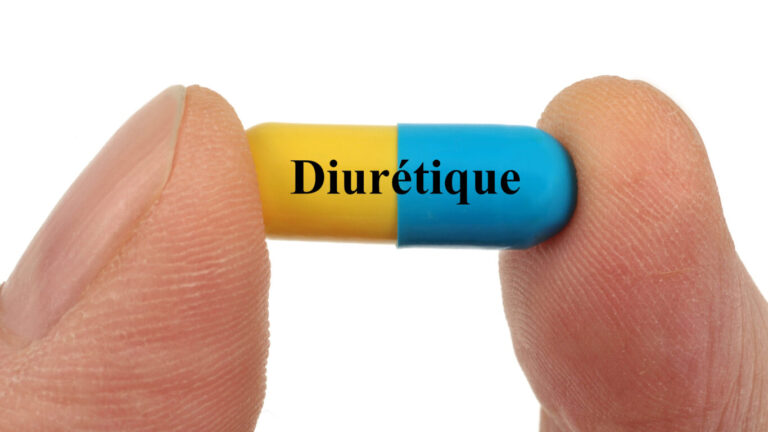Do Diuretics Help Lymphedema
Do Diuretics Work for Lymphedema? The Science Explained
Understanding Lymphedema and the Role of Diuretics
Lymphedema is a chronic condition that causes swelling in the arms, legs, or other body parts due to lymphatic fluid buildup. For those living with this condition, the search for effective treatment is often fraught with confusion and frustration. Among the many remedies considered, diuretics frequently come up. But do they work for lymphedema? This article deepens into the science to provide clear answers, catering to beginners and experts seeking insights.

Key Takeaways for Managing Lymphedema
- Diuretics may temporarily relieve secondary swelling but are not a solution for chronic lymphedema.
- Focus on therapies that target lymphatic fluid directly, such as MLD and compression.
- Stay updated on emerging treatments and consult a lymphedema specialist for personalized care.
What Is Lymphedema?
Lymphedema occurs when the lymphatic system, which helps regulate fluid balance and immune responses, becomes impaired. This can lead to fluid accumulation, resulting in swelling, discomfort, and reduced mobility.
Primary vs. Secondary Lymphedema
- Primary Lymphedema: A rare genetic condition where lymphatic vessels are underdeveloped or malformed.
- Secondary Lymphedema: Caused by external factors like surgery, radiation therapy, or infections that damage the lymphatic system.
How Are Diuretics Supposed to Help?
Diuretics, or “water pills,” are medications designed to help the body eliminate excess fluid by increasing urine production. Commonly prescribed for conditions like hypertension and congestive heart failure, they are a logical choice for managing lymphedema. But is it that simple?
The Science Behind Diuretics and Lymphedema
How Diuretics Work
Diuretics target the kidneys, prompting them to expel more sodium and water. This process reduces fluid retention in tissues, offering relief for specific conditions. However, lymphedema involves lymphatic fluid, not just general water retention.
Key Studies on Diuretics and Lymphedema
- Study 1 (2022): A comprehensive review published in The Lymphatic Research Journal found limited evidence supporting diuretics for long-term lymphedema management. The study noted that while diuretics may reduce swelling temporarily, they don’t address the underlying lymphatic dysfunction.
- Study 2 (2025): A recent meta-analysis in Clinical Lymphology highlighted the risk of diuretics causing dehydration and electrolyte imbalances without significantly improving lymphedema symptoms.
Why Diuretics May Not Be Effective
# Lymphatic Fluid vs. Edema Fluid
Lymphedema involves protein-rich lymphatic fluid, which is not easily excreted through diuresis. Diuretics primarily target water and sodium retention, leaving lymphatic buildup untouched.
- Potential Side Effects
- Dehydration: Excessive fluid removal can lead to dehydration, worsening fatigue, and other symptoms.
- Electrolyte Imbalances: Potassium and sodium levels may become unbalanced, leading to muscle cramps and cardiac issues.
- Increased Risk of Infection: Lymphedema already predisposes patients to infections like cellulitis. Diuretics can exacerbate this by impairing the skin’s natural defences.
What Experts Recommend Instead
# Manual Lymphatic Drainage (MLD)
This specialized massage technique stimulates the lymphatic system, helping to move lymph fluid out of swollen areas.
- Compression Therapy
- Compression Garments: Stockings or sleeves that apply pressure to reduce swelling.
- Pneumatic Compression Devices: Machines that inflate and deflate, promoting fluid movement.
- Exercise and Movement
- Gentle, low-impact activities like swimming or yoga encourage lymphatic flow and improve overall circulation.
# Complete Decongestive Therapy (CDT)
A multi-faceted approach combining MLD, compression, exercise, and skincare to manage lymphedema comprehensively.
Emerging Alternatives in 2025
# Lymphatic Stimulant Medications
New research explores drugs that enhance lymphatic function rather than targeting general fluid retention.
- Surgical Interventions
- Lymphovenous Bypass: Rerouting lymphatic fluid into nearby veins.
- Liposuction for Lymphedema: Removing fibrotic tissue to improve mobility and reduce swelling.
- Advanced Wearables
- Wearable devices with sensors to monitor swelling and provide real-time feedback on effective treatments are gaining traction.
Conclusion: The Bottom Line on Diuretics for Lymphedema
While diuretics might seem convenient for managing swelling, the science shows they are ineffective for treating lymphedema. Instead, focus on therapies directly addressing lymphatic health, such as manual lymphatic drainage, compression, and emerging medical innovations. Always consult a healthcare professional to tailor a treatment plan to your needs. By staying informed and proactive, you can better manage lymphedema and improve your quality of life.
FAQs About Diuretics and Lymphedema
Q: Can diuretics cure lymphedema?
Diuretics cannot cure lymphedema as they do not address the underlying lymphatic dysfunction.
Q: Are there any situations where diuretics might help?
Diuretics may temporarily relieve mixed oedema (a combination of lymphedema and general fluid retention), but this should be under medical supervision.
Q: What are safer alternatives to diuretics for managing swelling?
Manual lymphatic drainage, compression therapy, and complete decongestive therapy are effective and safer alternatives.
Q: Can diuretics worsen lymphedema?
Yes, overuse of diuretics can lead to dehydration and electrolyte imbalances, potentially worsening the condition.
Q: How can I find a lymphedema specialist?
Consult your primary healthcare provider for referrals or search through online directories like the Lymphatic Education & Research Network (LE&RN).
Don’t Let Lymphedema Control Your Life: Find Lasting Solutions Beyond Diuretics.
While diuretics might help with swelling, they aren’t the answer for managing lymphedema. To address the condition, turn to therapies that directly target lymphatic fluid, such as MLD and compression garments. Work with a lymphedema specialist to create a plan tailored to your needs and experience long-term relief.
